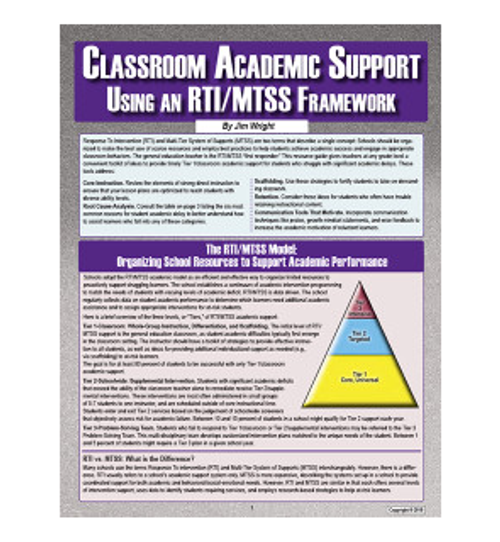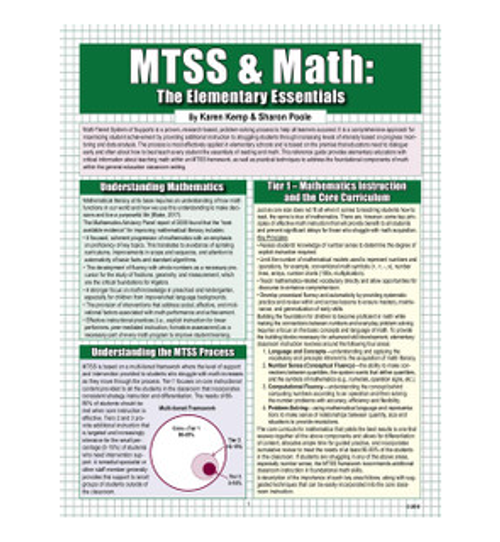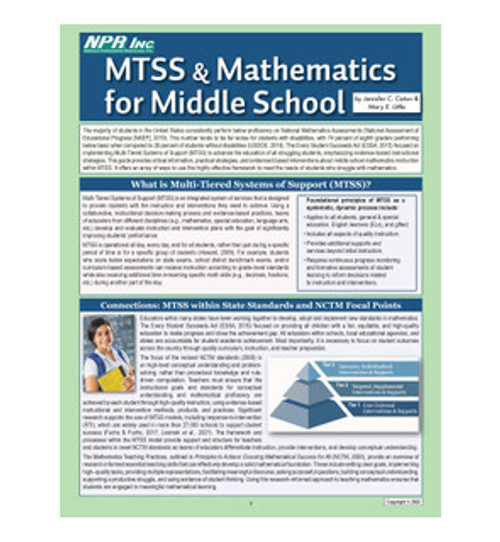Product Overview
This concise, tri-fold laminated guide is an essential resource for educators committed to effectively working together on intervention support teams to provide early intervention, remediate student difficulties, promote student success, and ensure equitable outcomes by removing barriers and ensuring access to resources.
Author Gary Schaffer provides an overview of Multi-Tiered Systems of Support (MTSS), a three-tier educational framework that integrates and aligns commonalities across different triangular, multi-tiered intervention service delivery models to create a cohesive system that ensures students receive coordinated support across academic, behavioral, and social-emotional domains.
It examines each of the four intervention service delivery models that comprise MTSS, which include
- Response to Intervention (RTI), used to support academic success by addressing specific learning deficits in areas such as reading, writing, and math
- School-Wide Positive Behavioral Interventions and Supports (SWPBIS), used to
- promote positive behavior, prevent behavioral challenges, and address behavioral deficits
- Social-Emotional RTI, used to promote social-emotional wellness and prevent difficulties by teaching social-emotional skills to all students and offering targeted support as needed.
- Suicide Prevention and Intervention, used to identify students at risk of suicide and provide proactive prevention and targeted mental health support
The guide breaks down the four essential components of each service delivery model, including 1) varying levels of student support, 2) universal screening, 3) progress monitoring, and 4) data-based decision-making. In a user-friendly chart, it identifies the who and what of the MTSS school-based team so all team members know their role. It also provides valuable tips on how to work together to effectively support students’ needs.
Gary E. Schaffer, PhD: Having grown up as a struggling student with ADHD and a learning disability, Gary has dedicated his professional life to helping all learners succeed. After earning his bachelor’s degree in special education and English, Gary went on to obtain a PhD in school psychology and become both a school psychologist and a clinical mental health counselor. Before obtaining his PhD, Gary practiced as a school psychologist in school, hospital, and state agency settings for over a decade, primarily working with diverse learners and individuals with developmental disabilities. Currently, Gary is a full-time Assistant Professor at Niagara University, where he teaches graduate students in school psychology and counseling. He has authored numerous scholarly articles, books, book chapters, and programs on topics such as MTSS, disability advocacy, and school psychology leadership and practice, and he has consulted and presented nationally on these subjects.








